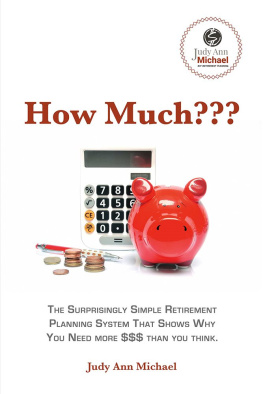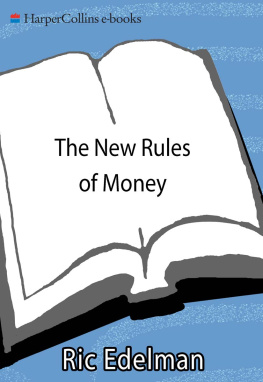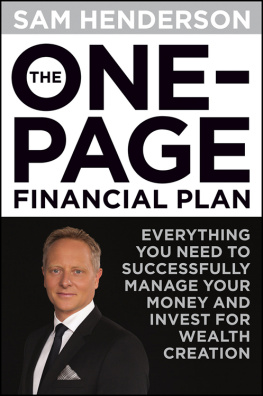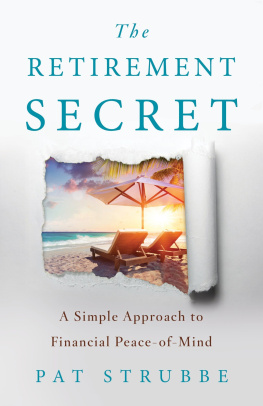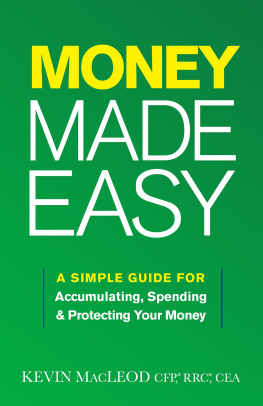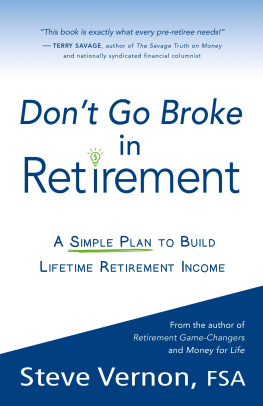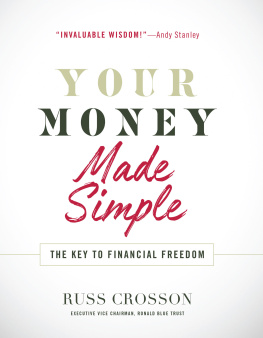DIY Retirement Planning Series
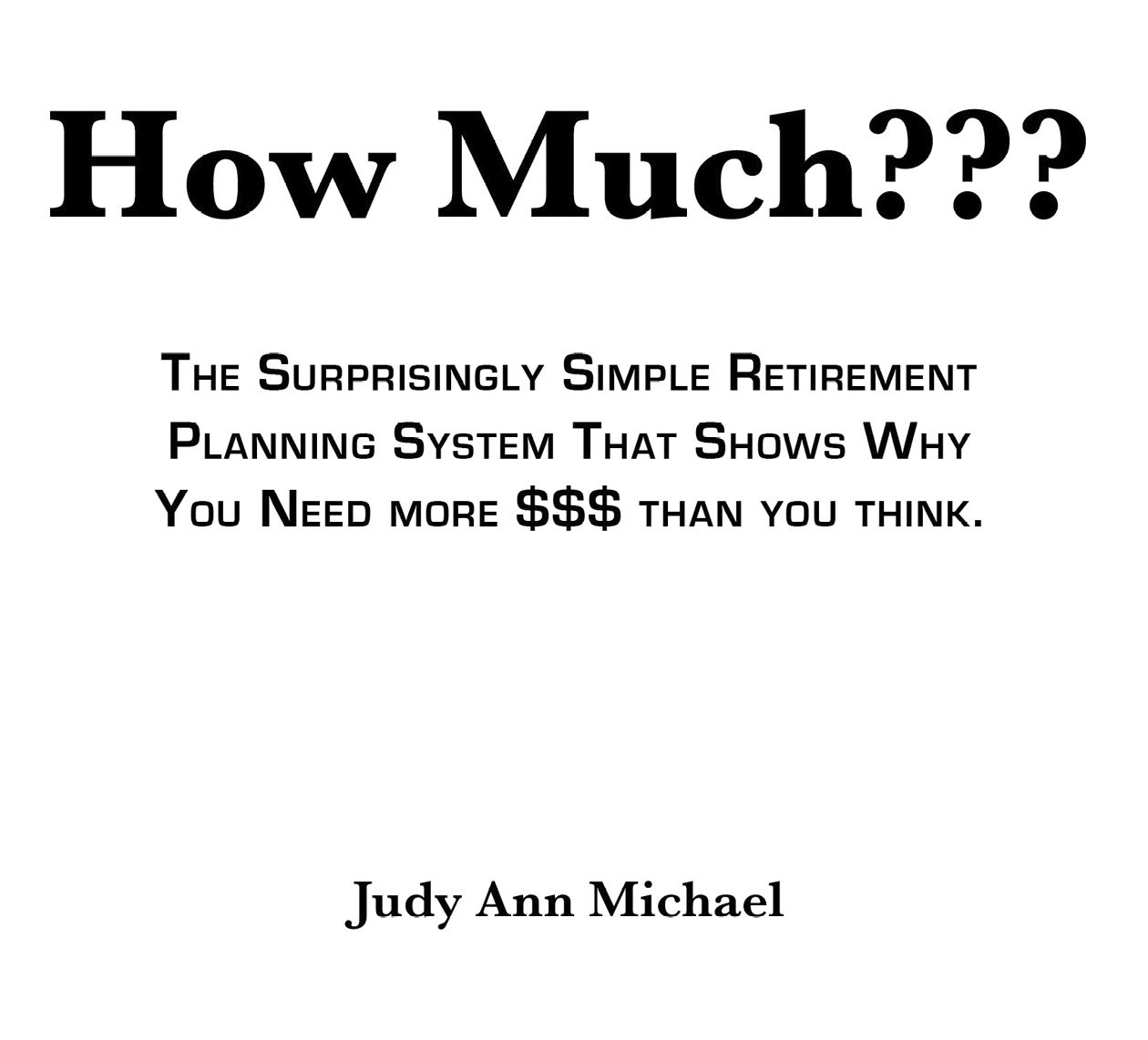
PART 1:
MIND-SET, VALUES, AND EMOTIONS
Any retirement planning process will challenge your mind and emotions. You may have to work longer than age 65 before you retire. You may have to downsize your home to save money. Instead of buying the best car or newest electronics, you may have to keep what you have and forego any new purchases. You might have to face financial mistakes youve made and correct them. Ultimately, you will have to prioritize what is important and spend your money accordingly. It is a time when you will have to examine your values and beliefs, and encounter uncomfortable emotions you had not anticipated.
You Spend Your Values
Quite simply, you spend your values. Think about the last item you purchased. You probably liked it, bought it for someone important to you, thought it was cool, or bought it to fill a need. Advertisers go to great lengths to understand what is important to you and target your priorities. Even if the last item you bought was toilet paper, you spent your values. If you are price conscious, you bought what was on sale or the big warehouse store package. If you like comfort, you bought a brand that was soft or had a pretty label. If you are environmentally conscious, you bought a brand made of recycled paper. If you like convenience, you probably had it delivered to your doorstep. We spend our values on the big and little purchases in our lives.
Our values change as we get older, and our financial decisions reflect our new priorities. In the child-rearing years, you may have purchased a four-bedroom home with a large yard. But when the kids grow up and leave the home, the convenience of a two-bedroom condominium may be appealing. You may have been a workaholic for the last three decades, but spending more time with your grandchildren may now be more important. Convenience, contribution to others, travel, and other desires may rise to the surface and require a shift in your priorities. Your value shifts will motivate you to spend differently, which results in a new financial picture. Embrace your new priorities and include them in your DIY Retirement Plan . They will serve as the inspiration for you to make profound changes.
A New Perspective
As you understand what inspires you, it will give you a reason to change, and your mind will begin to create solutions. If you currently have a dim view of your retirement, its time to reframe your future. Instead of focusing on what you dont have, focus on what is possible. Ask yourself what is good about your current situation. How can you take a small step to change where you are today? If you come from a mind-set of possibility, where you are open to options for employment, less expensive living arrangements, and improved health, you will create new choices. Stop thinking about what is impossible or overwhelming and search for what is possible right now.
Forgive yourself for not saving more money. Traditional financial wisdom estimates that you need at least $1 million to $2 million to retire, but you may not have earned that much in your entire career. Despite that, you did what you were supposed to do. You went to school, paid your taxes, maintained an excellent credit score, helped your parents, raised great kids, was a good friend, and built your career. Although you made a good income, you dont have a million dollars to retire. After realizing that less than 20% of Americans are millionaires, I decided that I would no longer feel guilty for not reaching that financial status. I did my best to be a good person, help others, and excel in my career. I am confident in my abilities. If you are feeling the least bit guilty, ashamed, or forlorn about not being a millionaire, dont be. It is a difficult milestone to achieve, especially if you are trying to lead a normal life in America. It is time to get to work and take responsibility for what you can do right now to move forward. Forget the dire predictions and get on the road to doing the best you can to improve your situation.
You may have to work longer than you planned, whether it is through a part-time job, full-time job, second job, or self-employment. You may stay in your current job or seek another position that is a better fit with your circumstances. If you enjoy your job, you are healthy, and your employer continues to provide a supportive environment, theres no reason not to keep working. But you might need to learn new skills to compete with younger workers who have different and highly technical skill sets. Be assertive and learn more technology, social media, and skills that keep you marketable. Keep an open mind about a second job or side gig. Develop new networks and connections to maintain a positive reputation in your company and industry.
Retirement requires you to take calculated risks at a time when you want to be more conservative, and most people are reticent to change. They only see the complexity of leaving their current situation and arent willing to look at the future in a different way. You will have to learn to cope with ongoing changes. Youll realize that youre not going to die if you meet new people, create a few specific retirement goals, move out of your home, and take on new challenges. Taking risks based on a clear understanding of the potential outcomes will alleviate your fears. Surround yourself with a supportive network of friends, family, or advisors who can help you take calculated risks and change your circumstances.
Finally, learn the art of creating options. No one wants to be forced to change, especially when it involves their personal life and finances. You might not have to move out of your beloved home, but be open to looking at options for downsizing or renting out part of your home. Getting a second job might not be a burden if it is an activity you enjoy. If you resist options to improve your future, you may overlook potential opportunities and benefits to change.
Fear and Confidence
As you develop your DIY Retirement Plan , you will need to confront strong fears. You may be in shock from how much money you spend each year. You may be overwhelmed that you need $5 million to support you, your spouse, and your current lifestyle. You might be fearful that you will have to work until you die and never enjoy your life again. You might be panicked that you will have to sell your home. These are natural responses you will have to address.
While taking a deep dive into your personal finances, you will discover emotions that you would rather not face. For instance, if you find that you are extremely resistant to giving up your morning coffee, favorite shopping trip, or hobby, ask yourself why you have such a strong reaction. It is often tied to the feeling you get from those experiences and not the purchase itself. Your morning coffee at Starbucks might be the only quiet time you have all day. Your shopping trips are freedom from the house, job, or kids. Your hobby is your creative outlet. Ask yourself if there is a different way you can get the things you enjoysuch as solitude, freedom, or creativitywithout crimping your cash flow.
How you handle your fears is crucial to developing a successful retirement plan. First, you dont want your fears to immobilize you and keep you from taking further steps. You dont want your fear to turn into anger, resulting in an ongoing shouting match with your spouse and damaging your relationship. You dont want to blame society, the government, your employer, parents, or kids for your situation, and settle into bitterness, but take responsibility for your future. You dont want to give up entirely because your future will still be there tomorrow for you to face.

